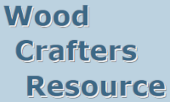Quick tip: Save money while making your own wipe-on polyurethane

Available in both brush and wipe-on formulas, Polyurethane finish has long been a staple in many workshops. Providing a tough finish capable of withstanding much abuse makes Polyurethane the one we reach for the most often. The wipe-on variety offers an easy and almost foolproof method for applying this protective coating.
Whether you are trying to increase your profits for crafts that you plan to sell, or simply want to save money in order to do more in your workshop, you are always looking for a way to decrease your costs of raw materials. Buying ready-made products such as wipe-on polyurethane finish is certainly a quick and easy way to go.
But did you know that you can make your own wipe-on polyurethane finish for a fraction of the cost of the ready-made stuff?
You see, oil-based wipe-on polyurethane is essentially a diluted form of polyurethane finish thinned with paint thinner. As a thinner, you can use mineral spirits, turpentine or most other commercial oil paint thinners. We prefer mineral spirits because it is a more refined paint thinner and is available in odorless form.
How much money can you save making your own?
For the sake of calculating the potential economies of making your own wipe-on, we took a look at the prices for 1 quart of Polyurethane finish and 1 quart of mineral spirits at Home Depot. Their website showed the following prices:

If you were to produce a blend of 50/50 with the above, you would get 2 quarts of wipe-on poly for $19.26.
A pint (2 pints per quart) of ready-made Wipe-On Polyurethane finish costs ($12.28):

Your savings if you make your own
In our example, you would have to purchase 4 pints of ready-made wipe-on to produce the same amount as our home-made recipe for a total cost of $49.12.
So, the economies become clear that for the same quantity of product, you pay less than 40% to make your own. In our example, you would have saved $29.86 (or 60.8% saving!).
Making your own
As mentioned earlier, we like to make a 50/50 blend of poly and mineral spirits. It results in a product that is not too runny and provides a quicker buildup on our projects. The beauty here is you can combine these products into any proportion that you wish. If, for example, you want a thicker wipe-on, you can go with 3 parts poly to 1 part spirits or whatever suits your needs.
Applying wipe-on
- Always apply your wipe-on with a lint-free paper towel or shop rag.
- Follow the direction of the grain and avoid build-up at the edges of the piece.
- Between each coat of wipe-on, you should always use #0000 steel wool (or 320 grit sandpaper) to prep the surface for the next coat. A light sanding will suffice.
- Make sure you wipe off any dust after each sanding using a tack clothe.
- You should never shake your mixture in order to avoid air bubbles that might get trapped in your solution. It is best to gently stir your mixture occasionally throughout your application.
- Stirring your mixture during your application will prevent cloudy streaks.
- Never apply subsequent coats until the prior coat has dried completely. Depending on the humidity levels in your area, this can take from 6 hours to several days. So, be patient if you live or your workshop is in a humid area.
- Depending on the blend that you make, at 50/50, we usually apply between 7 and 10 coats of wipe-on to tabletops. It builds up nicely and provides a tough durable finish. For other pieces, 3-4 applications might be enough depending on how much abuse the piece will be subjected to. For our table, we apply 3-4 coats to the aprons and legs.
The advantages of brewing your own
- Cost savings - save up to 60% from the price of pre-made wipe-on
- You control the amount of dilution you need for a particular application.
- You can use the undiluted polyurethane for brush on applications
- You can use the mineral spirits on its own to clean you brushes and other workshop messes
In addition to the benefits outlined in this QuickTip, growing your profits and savings will simply allow you to do more with your money. Whether it is buying new tools or materials for you next creation, there are no downsides.





